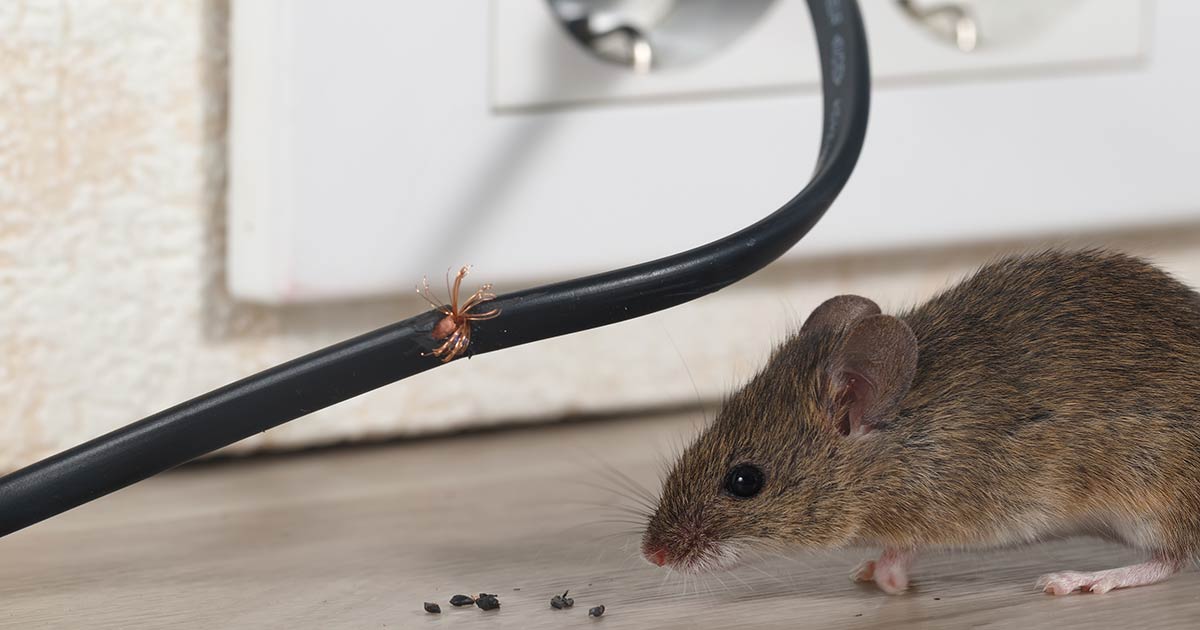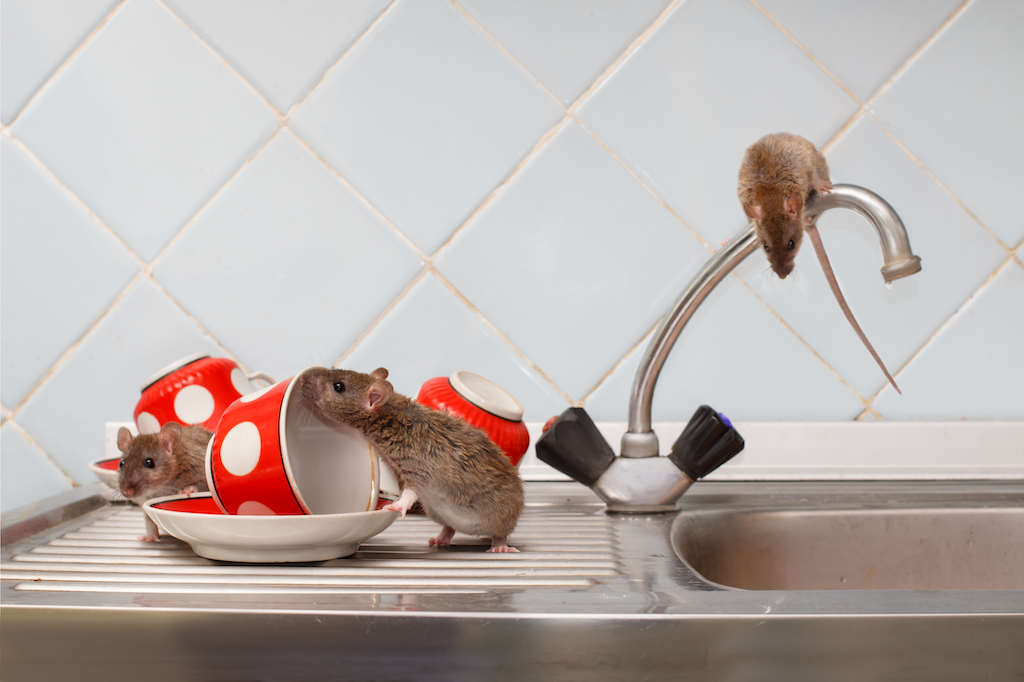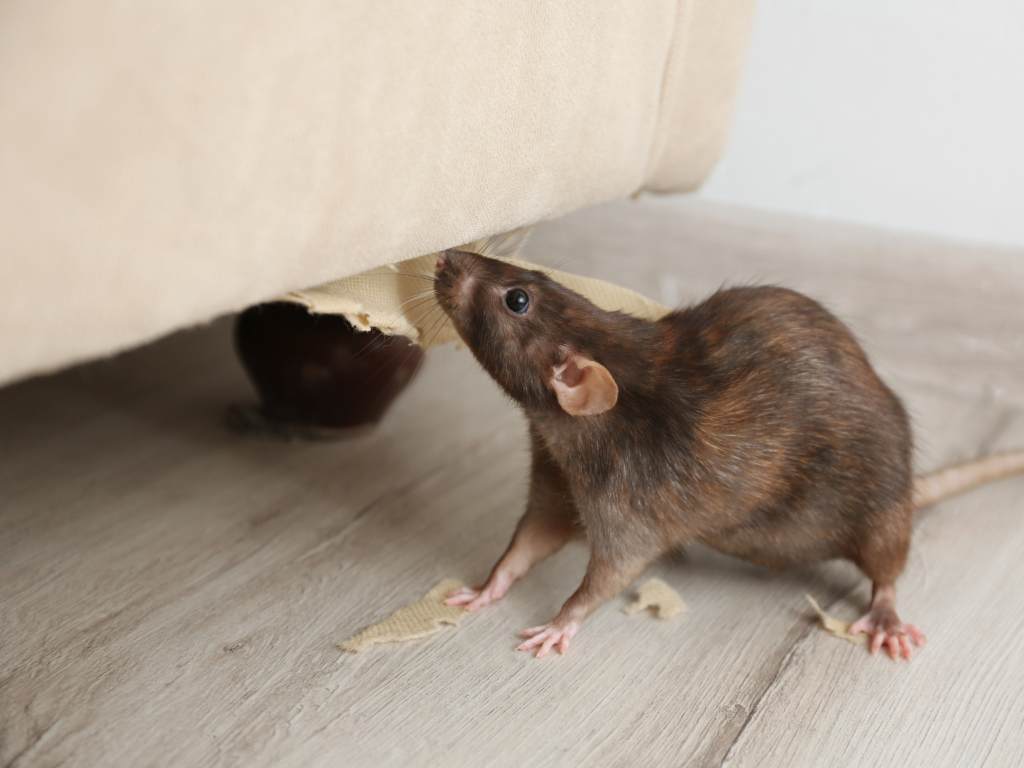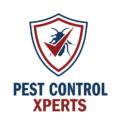Rodent Control and Rat Extermination in Homestead Florida, Pest Control Xperts
At Pest Control Xperts, we help homeowners, renters, and commercial property managers tackle severe rat infestations through dedicated rodent removal and rat control services. Serving Homestead and surrounding areas like Florida City and Naranja, our team knows how to handle the heavy rodent pressure common to South Florida. With abundant fruit trees, dense palm canopies, and older crawlspaces, our region provides the perfect breeding grounds for large rodents. We know how alarming it is to hear heavy thumping in your attic or find destroyed boxes in your garage. That is why we focus heavily on thorough pest inspection, precision targeted treatment, and clear communication from the very first visit. We evaluate your entire structure to find exactly how these animals are getting inside. Continue reading below to learn more about the specific rodent problems we solve locally.
Rodent Problems We Solve in Homestead
When large rodents invade your property, they cause massive structural damage and introduce severe health risks. A single rat can chew through wood, drywall, and plumbing lines, causing hidden leaks and potential fire hazards. In our tropical climate, continuous infestation control is essential because these animals breed year round and constantly seek shelter from heavy seasonal rains. While many homeowners rely on us for general insect control, handling large wildlife requires a completely different approach focused on structural integrity. Many residents try setting out snap traps in the garage, but without a detailed pest inspection and active pest tracking, the main colony living in your ceiling will continue to multiply.
Effective pest management means identifying exactly where these animals are nesting and what outdoor food sources are sustaining them. Our primary goal is the complete elimination of pests so you can feel secure in your home without worrying about contamination or property damage.
Common signs of a rodent issue:
- Large dark droppings found in attics or along garage walls
- Heavy thumping or scurrying noises echoing from the roof at night
- Chewed holes the size of a golf ball in exterior siding or vents
- Smudge marks of dark grease along exterior walls and rooflines
- Hollowed out citrus or avocados found dropped in your yard
- Shredded insulation or cardboard gathered in dark storage corners
- Unpleasant ammonia odors lingering in enclosed spaces
- Pets acting highly alert or growling at blank walls
- Live rats seen running along fence lines or overhead wires

Types of Rodent Issues We Handle
Roof rats in attics and elevated spaces
Roof rats are incredibly agile climbers that frequently use overhanging tree branches or utility lines to access your roof. Once they chew through a vulnerable soffit or damaged vent, they establish large nests inside your hot attic space. They tear up fiberglass insulation and leave highly unsanitary droppings scattered across your ceiling panels, creating a massive biological hazard directly above your living areas.
What we look for during inspection:
- Scurrying noises and heavy thumping coming from the ceiling
- Damaged roof returns and chewed wooden soffit boards
- Grease rub marks around elevated exterior vents
- Large droppings clustered near the attic access hatch
- Tunnels dug through the deep insulation layers
How we approach treatment:
We rely on strict integrated pest management to clear elevated nesting zones. Our team utilizes targeted extermination services through secure trapping in the attic to capture the active rats safely. By placing specialized baiting systems where appropriate in secure exterior areas, we reduce the population trying to enter. Our most critical step involves exclusion techniques for pests, specifically sealing the roofline gaps and replacing damaged vent screens. Finally, we recommend trimming your palm trees and roof canopy as vital pest prevention steps.
Rodent activity in crawlspaces and exterior foundations
While some rats prefer high places, others are ground dwellers that build complex burrow systems beneath your home. These rodents exploit the damp crawlspaces and older foundations common in Homestead, utilizing compromised weep holes and failing access doors to get under your floors. They frequently chew through plumbing pipes for water and strip the vapor barriers to build their nests.
What we look for during inspection:
- Large burrows dug directly against the concrete foundation
- Damaged or missing screens on crawlspace access panels
- Chewed air conditioning ducts under the floorboards
- Heavy grease marks leading through foundation cracks
- Droppings accumulating on outdoor patios and walkways
How we approach treatment:
We use comprehensive integrated pest management to build a strong foundation barrier. We deploy targeted extermination services along the lower perimeter and place tamper resistant baiting systems where appropriate to drastically reduce the outdoor population. We rely heavily on exclusion techniques for pests to seal up the foundation cracks and install heavy metal mesh over your crawlspace vents. We also offer pest proofing guidance regarding yard debris and moisture reduction to complete your property pest prevention steps.
Fruit tree foragers and yard rodent activity
Homestead is famous for its rich agricultural history and lush residential landscaping. Unfortunately, abundant fruit trees, vegetable gardens, and nut producing palms act as an all you can eat buffet for wild rats. If your yard provides endless food, it is only a matter of time before these foragers decide to move inside your walls for shelter.
What we look for during inspection:
- Hollowed out fruit dropped at the base of your citrus trees
- Runways worn into the grass leading toward your house
- Activity centralized around outdoor compost bins or trash cans
- Droppings scattered across your pool deck or patio
- Chewed irrigation lines providing a constant water source
How we approach treatment:
We apply rigorous integrated pest management to secure your yard and stop the animals before they breach your walls. We utilize targeted extermination services outside, placing secure baiting systems where appropriate along the fence lines and away from non target wildlife. We focus on exclusion techniques for pests around your exterior doors and windows. We also share crucial sanitation advice and pest proofing tips for harvesting fruit regularly, serving as essential pest prevention steps to protect your landscaping.

Our Rodent Inspection and Treatment Approach
Solving a severe rat infestation requires a highly detailed structural strategy. That is exactly why we start every job with our comprehensive pest assessment services. When our technicians arrive at your Homestead property, we conduct a meticulous pest inspection of the entire premises, examining the attic, crawlspaces, garage, and exterior perimeter. We actively look for the specific entry points these large animals use to breach your walls, inspecting the roofline for chewed gaps and checking the foundation for open burrows. We also identify food drivers, such as fallen fruit or unsecured garbage, that make your home so attractive to a nesting rat family.
Once we map out their travel routes and understand the full scope of the invasion, we customize our treatment methods based on your unique environment. We rely completely on integrated pest management principles to ensure we solve the root cause safely and effectively. This dedication to safe pest management means we prioritize secure trapping and the strategic use of advanced baiting systems where appropriate, always ensuring these materials are locked in tamper resistant stations kept entirely out of reach of children and household pets. Our long term pest control planning focuses on removing the current population quickly while securing the building envelope.
Beyond the immediate removal process, we help you secure the property through extensive pest proofing. We identify the specific exterior gaps that require permanent sealing, offering guidance on highly effective protective measures against pests. To maintain this security over time, we strongly recommend our periodic pest inspections, which serve as proactive pest detection systems. By combining physical repairs, preventative pest measures, and targeted pest barrier installation around your foundation and roofline, we keep your home completely secure against future rat invasions.

Rodent Prevention and Pest Proofing Tips for Homestead Homes
Once we successfully clear the rats from your property, maintaining that secure environment requires active property pest management. The year round warmth and abundant vegetation in our region mean that outdoor rodents will always look for a safe place to build a nest. Implementing smart pest deterrent strategies and prioritizing consistent seasonal pest control will drastically lower the chances of a new infestation taking hold in your attic. While natural pest repellents are frequently discussed online, they are largely ineffective for large rats when used alone. They only work well as a minor part of a broader safe pest management plan that is deeply rooted in rigorous yard sanitation and physical home repairs. By taking control of your exterior food sources and structural integrity, you make your home incredibly unappealing to these animals.
Preventative steps that actually help:
- Harvest all ripe fruit from your citrus and avocado trees immediately
- Pick up fallen fruit and nuts from the yard every single day
- Keep tree branches and palm fronds trimmed at least three feet away from your roof
- Store all outdoor garbage in heavy duty bins with tight fitting lids
- Seal cracks along the exterior foundation using heavy caulk or steel wool
- Repair damaged screens on your roof vents and crawlspace panels immediately
- Avoid leaving pet food outside on the patio overnight
- Keep firewood stacked off the ground and away from the exterior siding
- Fix any leaking outdoor spigots or irrigation pipes that provide standing water
- Implement routine pest prevention and pest proofing habits as part of your weekly yard maintenance
Residential and Commercial Rodent Control
Rat infestations cause immense stress regardless of the property type, which is exactly why we offer highly customized solutions for every building. Our residential pest control services are tailored specifically to protect your family from the severe health risks associated with these animals, keeping your living areas completely secure. We know how the older homes and lush yards in South Florida create unique challenges, allowing us to deliver comprehensive pest solutions that address your specific household layout and local environment.
For local businesses, maintaining a spotless reputation is absolutely vital. Our commercial pest services address the intense pressures faced by property managers, retail store owners, and hospitality venues. Whether you need strict restaurant pest control to manage a busy commercial kitchen or require discreet interventions for a large warehouse, we have the specialized knowledge to handle it. We understand that local business owners need reliable, professional pest control to ensure daily operations run smoothly without unsanitary interruptions. As your trusted local pest control team and experienced pest exterminators, we align our visits with your operational schedule. We provide meticulous documentation and clear communication to ensure your property remains completely protected and fully compliant with your high standards.
Professional Rat Extermination vs DIY Methods
When you hear heavy scratching in the attic or find chewed fruit in the yard, the immediate reaction is often to grab a few traps or bags of poison from the local hardware store. While tackling the problem yourself might seem convenient, these do it yourself methods usually make the infestation significantly harder to resolve. Throwing poison into your attic is incredibly risky because the rats will consume it and die deep inside your inaccessible wall voids, creating an unbearable odor that lasts for weeks.
Another major failure of DIY approaches is missing the structural entry points. Setting a few traps does absolutely nothing if there is still a chewed hole in your roof soffit allowing new animals to enter your home every single night. Professional teams know exactly how to identify these invisible gaps and implement heavy duty exclusion techniques for pests to permanently block their travel routes. We also utilize secure baiting systems where appropriate, placing them strategically outdoors to manage the population before they ever reach your walls.
Furthermore, professionals prioritize the safe use of products around kids and pets. We ensure all trapping equipment and materials are locked in tamper resistant stations or placed inside structural voids where children, pets, and non target wildlife cannot reach them. By choosing professional intervention, you bypass the frustrating cycle of trapping and failing, replacing it with a strategic, permanent solution that actually secures your home from the outside in.
Frequently Asked Questions About Rodent Control
Do you provide rodent control in Homestead and nearby areas?
Yes, we proudly provide comprehensive rodent control in Homestead and surrounding communities, including Florida City, Cutler Bay, and Redland. Our local technicians are deeply familiar with the unique housing styles and abundant agricultural environments in our region, allowing us to respond quickly and effectively to any rat invasion impacting your property.
How long does it take to see results after a rodent treatment?
The timeline depends heavily on the severity of the infestation and the size of your property. You will typically notice a significant drop in activity and noises within the first few days of our targeted trapping program. Complete elimination usually takes two to four weeks as we intercept the remaining animals and secure the structural entry points.
Do you handle roof rats in attics?
Yes, roof rats are incredibly common in our area and frequently nest in hot attics. We perform detailed inspections of your roofline, deploy secure trapping methods inside the attic space, and seal up the chewed gaps along your soffits and vents to ensure the colony is completely eliminated and cannot return.
What should I do to prepare my home before your service?
Proper preparation helps us achieve the best results. We highly recommend clearing out yard debris, picking up fallen fruit, and ensuring your attic access hatch is clear of clutter before we arrive. Removing obstacles gives our technicians the clear access needed to perform a thorough exterior and interior inspection.
Why do rats keep coming back after I catch them?
Catching a few rats only removes a small fraction of the population. It does not address the main nest hidden in your attic, nor does it fix the holes they use to get inside. Unless the entire colony is removed and the entry points are completely sealed, new rats will constantly replace the ones you caught.
How do you find exactly where the rodents are coming from?
Our technicians are highly trained in detailed pest tracking. We inspect dark attic corners, examine your roofline, and check the foundation for burrows. We look closely for grease smudge marks, fresh droppings, and chewed materials to map out their exact travel routes, allowing us to find and seal the specific holes they use to enter your living spaces.
Do you offer green pest control options for rodents?
We approach every infestation using strict integrated pest management protocols, which forms the basis of our green pest control philosophy. This method focuses heavily on physical exclusion, yard sanitation, and targeted trapping indoors. By permanently altering the environment and sealing gaps, we solve the problem effectively while minimizing the need for extensive chemical baiting around your home.
How do I find a reliable local rodent removal service near me?
When looking for local help, you need a company that prioritizes detailed structural inspections and root cause solutions rather than just tossing poison in the attic. We serve Homestead and the neighboring towns with a dedication to finding every hidden entry point, delivering long lasting results that keep your home completely secure.
Service Area for Rodent Extermination in and Around Homestead, Florida
We are incredibly proud to serve the South Miami Dade region, providing dedicated rat treatment and exclusion services to our neighbors. Whether you live in a historic home right in town or manage an agricultural property in the surrounding districts, our team travels daily throughout the area to help residents secure their homes against these destructive invaders.
Nearby areas we serve:
- Florida City
- Leisure City
- Princeton
- Naranja
- Redland
- Silver Palm
- Goulds
- Cutler Bay
Choosing local service means you benefit from a team that truly understands the unique environment we live in. We know exactly how the lush fruit trees and older construction styles create the perfect entry points for wildlife, and we are highly familiar with the structural challenges found in local housing. Our close proximity allows us to respond promptly, providing consistent and reliable coverage exactly when you need it.
Zip codes we serve: 33030, 33031, 33032, 33033, 33034, 33035.
Conclusion
Dealing with a severe rat infestation is incredibly stressful and unsanitary, but you do not have to handle the situation alone. At Pest Control Xperts, we help homeowners, renters, and commercial property managers throughout Homestead conquer everything from a persistent yard rat to a massive colony living in the attic. We focus entirely on locating the hidden nests, applying highly targeted solutions to remove the population, and sealing up the structural entry points so they cannot return. Your property deserves to be a clean, comfortable space entirely clear of these destructive animals. If you are tired of hearing heavy scratching in your ceiling or suspect a hidden problem in your crawlspace, let our experienced local team resolve the issue permanently. Reach out to us for assistance.
